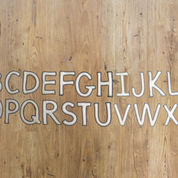
Rocky Point Academy

Reading Program
Purpose
To address learning challenges and enhance reading, spelling, and handwriting skills by helping individuals stabilize their perceptions, manage perceptual disorientation, and use specific techniques to improve fluency and comprehension.
Age
Suitable for children with a maturity level of age seven and up, extending through adults
Length of Program
Approximately 30 hours, typically given over the course of five consecutive days, with unlimited follow-up consultation included.
Outcome
By the end of the 30-hour facilitated program, participants will have learned and become comfortable with all the mental-focusing tools provided. Older children and adults usually see marked improvements in reading effort, accuracy and speed within this one-week timeframe, often advancing by three or more reading grade levels.
For very young children, progress might be more gradual. Post-program follow-up at home is essential in order to continue advancing over the months following the initial facilitated program.


Develops
Fluency
Achieving mastery of sight words, developing smooth left-to-right eye-tracking, enhancing vocabulary recognition, and progressing from phonetic decoding to whole-word recognition for smoother reading
Comprehension
Improving listening and reading comprehension, mastering punctuation, understanding story and essay structures, and using intention to retain information from the first readthrough.
Memory & Spelling
Employing strategies to store information in long-term memory and utilizing study techniques tailored to different learning styles.
Editing
Refining skills in self-correction of omissions, spelling and grammatical errors, punctuation use, and enhancing descriptive writing.
Positive Thinking
Fostering a relaxed and positive mindset to maximize learning potential, recognizing and releasing stress before it leads to frustration during reading, and implementing strategies to reduce test anxiety.

Reduces
• Inconsistencies in reading performance (knowing the material one day and not the next)
• Anxiety, headaches, dizziness, stomachaches or tears related to reading difficulties
• Fatigue
• Guessing at words
• Rushing and making careless reading errors
• The experience of words seeming to move on the page
• Inaccurate or inconsistent pronunciation
• The need to re-read for comprehension
• Slow, laborious phonetic decoding of words
• Reversals
• Eye-tracking issues
• Distraction while reading
• Test anxiety
• Negative feelings towards reading tasks

Reading Program Tools
The Programs provided at Rocky Point Academy get to the root of learning challenges. Each client leaves with a “tool box” The following are a list of tools that may be provided.
Click any the pictures below to see a larger version of the tools' descriptions.



















